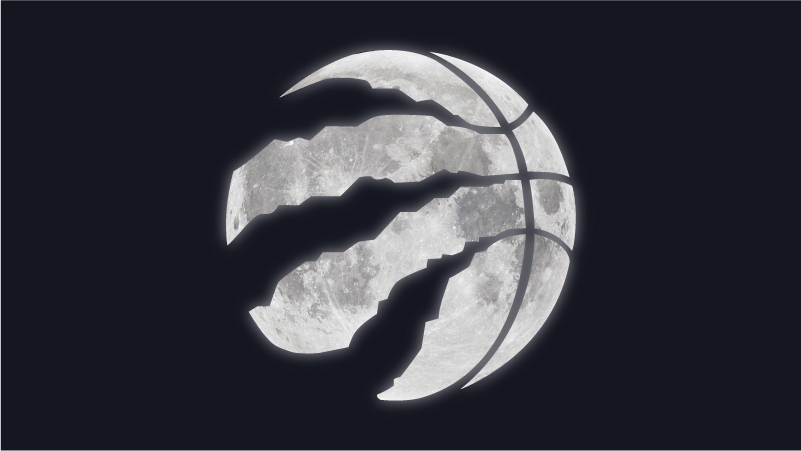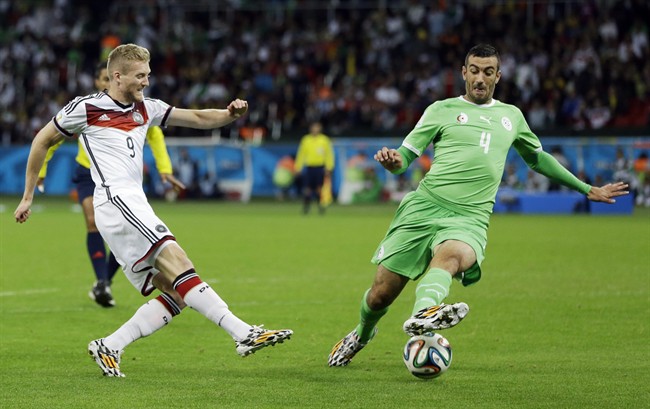TORONTO – The end of June marked the beginning of two global events: the kickoff of a month of fasting for Ramadan and the second round of the World Cup.

The pair of world events put a handful of World Cup athletes observing Ramadan in a tough spot. They’ll be playing in Brazil’s 30C heat while abstaining from food and water from sunrise to sundown.
About a couple dozen soccer players from Algeria, Nigeria, France, Germany and the Ivory Coast are fasting. This year is the first time since 1986 that Ramadan has fallen during the tournament.
But it isn’t staving off food that’s troublesome to sports medicine Dr. Greg Wells – it’s abstaining from water.
“It’s particularly challenging at the World Cup mainly because of heat and humidity. Dehydration is a huge issue, especially later in the game,” Wells explained.
Wells is a University of Toronto kinesiologist and Hospital for Sick Children scientist.
READ MORE: Ramadan fasting – Canadian experts provide tips to stay healthy, hydrated
When athletes exercise at a high intensity, their muscles produce heat. Their bodies, in turn, regulate their temperature and remove the heat out of the body through sweating.
“When it’s so hot and humid, the body sweats a ton, and staying hydrated and being able to keep electrolyte levels right is a challenge,” Wells told Global News.
- Budget 2024 failed to spark ‘political reboot’ for Liberals, polling suggests
- Train goes up in flames while rolling through London, Ont. Here’s what we know
- Peel police chief met Sri Lankan officer a court says ‘participated’ in torture
- Wrong remains sent to ‘exhausted’ Canadian family after death on Cuba vacation
Keep in mind, games are at least an hour and a half and run into the two-hour mark. The men usually run about 10 kilometres and burn between 3,000 and 5,000 calories.
Fasting is tough, but Wells and Cleveland Clinic registered dietitian Jennifer Sygo reminds readers: these World Cup athletes are seasoned athletes who have had decades of experience in their sport. Playing on an empty stomach isn’t necessarily detrimental to their game.
“Some athletes do it intentionally as a means of making their bodies more efficient at burning fat over carbohydrates. You usually won’t do a fast for the most important match of your career, though,” Sygo said.
READ MORE: No sex at the World Cup – does abstinence help players perform?
During Ramadan, most healthy Muslims abstain from food and drink from sunrise to sunset for 30 days. But keep in mind, Brazil is going through its winter season now, so the sun typically sets by 5:30 p.m., unlike Canada where our summer days stretch until 9 p.m.
Most athletes typically load up on a healthy meal three to four hours beforehand. A noon game would mean they’re warming up by 10:30, and typically eating breakfast by 7:30. That means those fasting are probably eating only an hour to two hours before their counterparts.
“The players are so incredibly fit that they have enough energy stores to get through a game without needing that much fuel,” Wells said.
Afternoon games may be trickier. The upside there is that post-game, the players won’t have to wait long to break fast at sunset.
That’s when they’d ideally load up on carbohydrates, fat, and protein to rebuild their muscle glycogen and refuel their nervous system.
So for some, fasting may be a nuisance, but others may turn it into a discipline that keeps them focused and alert.
“I doubt any of them would call it a disadvantage. Obviously the World Cup is the biggest stage with more pressure, more intensity and more at stake, but they’re professionals,” Wells said.
READ MORE: 8 ways global health officials want you to celebrate the World Cup
To compensate, players will often hydrate overnight. Some may even wake up every few hours to drink water. When it comes to food, research has suggested that as long as players eat their overall caloric intake – even if it isn’t spread throughout a day – their performance won’t take a hit.
And Sygo and Wells both say: how players eat and drink during game day isn’t as critical as their pattern of eating in the weeks and months leading up to the tournament.
It also depends on the player: the Ivory Coast’s Kolo Toure told Al Arabiya News last month that Ramadan made him “feel even stronger.”
Yaya Toure, on the other hand, told The National in Abu Dhabi that fasting wasn’t an option.
“Have you seen the weather? I would die,” he told the Middle East newspaper.
Read more World Cup coverage here.
Players can ask their imams to make an exemption so they can comeplete the month of Ramadan at a later date, Wells said.
It’s up to the players and their teams to decide what’s best. This week, Algeria’s coach denied allegations that he ordered his Muslim players to avoid fasting.
His team captain told The Associated Press that fasting while playing is commonplace in the sport.
“The hardest thing is staying hydrated but it’s okay. The weather’s good here. Some players will postpone their fast for another time, but depending on my physical condition, I think I will do it,” Madjid Bouguerra told the wire agency.
carmen.chai@globalnews.ca
Follow @Carmen_Chai





Comments